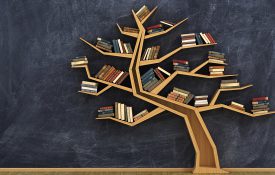A central part of the mission of the International Convention of Psychological Science (ICPS) is to promote skill building in integrative psychological science. The program includes workshops by leading experts on various cutting-edge methodologies.
There is no additional charge for these workshops; they are included with ICPS registration, and available only to ICPS registrants.
Trial-By-Trial Data Model Fitting
Saturday, 9 March 2019 | 16:00 – 17:20 (4:00 PM – 5:20 PM) Room 251
Yael Niv, Princeton Neuroscience Institute and Department of Psychology, Princeton University, USA
Computational models such as reinforcement learning models can be seen as precisely defined hypotheses about how experimental conditions will affect behavioral and neural data. This workshop will provide tools for testing such hypotheses: How we can use detailed trial-by-trial choices or reaction times to test hypotheses about model parameters (e.g., learning rate, exploration rate) and to compare different computational models. The methods are useful for any time-varying data in which one cannot average the data and use t tests.
Changing Minds and Behaviours: Quantifying Persuasion Processes in Naturally Occurring Social Interaction
Friday, 8 March 2019 | 11:30 – 12:50 (11:30 AM – 12:50 PM) Room 351
Enny Das, Centre for Language Studies, Faculty of Arts, Radboud University Nijmegen, Netherlands
Persuasion often takes place in interactive environments that are difficult to capture in experimental studies. This workshop discusses methods to quantify social processes in naturally occurring interpersonal and online interactions. We examine how to measure key elements of social interactions, and causal effects on outcome measures relevant to the persuasion context.
Methods in Interoceptive Research: Challenges and Opportunities
Friday, 8 March 2019 | 11:30 – 12:50 (11:30 AM – 12:50 PM) Room 251
Manos Tsakiris, Department of Psychology, Royal Holloway, University of London, United Kingdom
Aleksandra Herman, Department of Psychology, Royal Holloway, University of London, United Kingdom
To achieve its appropriate place within psychological science, interoception research must develop a wider and more grounded measurement model. This ambition necessitates wide-ranging, dedicated, and systematic theoretical and methodological enquiries into the hierarchical relations in interoceptive processing, the horizontal relations across interoceptive modalities and the causal relations between interoception and awareness. The workshop will discuss existing methods and recent methodological advances.
Experimentally Induced Sickness in Humans
Friday, 8 March 2019 | 16:00 – 17:20 (4:00 PM – 5:20 PM) Room 251
Mats Lekander, Department of Clinical Neuroscience, Karolinska Institutet, Sweden
The workshop will describe how experimental methods can be used to trigger a transient inflammatory response in humans in order to study behavioral and neural responses to signaling from the immune system. Focus will be on lipopolysaccharide (LPS; endotoxin), a substance that causes a sickness response in which depressed mood, pain, and fatigue are central components.
Studying Cognition Across Languages and Cultures (a.k.a. Studying Cognition): Methods and Approaches
Saturday, 9 March 2019 | 11:30 – 12:50 (11:30 AM – 12:50 PM) Room 352B
Lera Boroditsky, Department of Cognitive Science, University of California, San Diego, USA
The vast majority of research on human cognition has focused on undergraduates at elite universities. This means our current scientific understanding of the human mind is narrow and biased. This in turn presents exciting opportunities. Basic fundamental questions about human nature are at stake and much remains to be discovered. The speaker will present some practical methodological approaches for broadening the scope of inquiry.
Body Ownership Illusions as Experimental Tools in Psychological Science and Cognitive Neuroscience
Saturday, 9 March 2019 | 11:30 – 12:50 (11:30 PM – 12:50 PM) Room 251
Henrik Ehrsson, Department of Neuroscience, Karolinska Institutet, Sweden
When we look down at our bodies, we immediately perceive that they belong to us. This perceptual experience of a body or body part as one’s own is referred to as “body ownership.” In this workshop, the speaker will discuss how perceptual body illusions can be used to study the cognitive processes that underpin the sense of ownership of one’s body and various aspects of body representation. In particular, the focus will be on different versions of the rubber-hand illusion and the full-body ownership illusion, and the best ways to elicit and quantify such perceptual phenomena will be considered.
Emotions in Group Conflict and Cooperation
Saturday, 9 March 2019 | 11:30 – 12:50 (11:30 PM – 12:50 PM) Room 351
Emma Cohen, Institute of Cognitive and Evolutionary Anthropology, University of Oxford, United Kingdom
Eran Halperin, Baruch Ivcher School of Psychology, Interdisciplinary Center Herzliya, Israel
What psychological processes guide human conflict and cooperation, how can we measure them, and can they be regulated or changed? In this workshop, we will introduce a broad range of conceptual and methodological approaches that we have used to investigate emotional processes in the context of conflict and cooperation, emphasizing affective mechanisms on the individual, small group, and collective levels. Using examples from our own work and beyond, we will discuss merits and limitations of different conceptual approaches and methodological tools for addressing current challenges in the field, both scientific and applied.
Conceptual Tools for the Study of Culture
Saturday, 9 March 2019 | 16:00 – 17:20 (4:00 PM – 5:20 PM) Room 351
Dan Sperber, Department of Cognitive Science, Institut Jean Nicod, France
This workshop will present a variety of conceptual tools for a naturalistic approach to culture. How do individual cognitive processes and interindividual interactions broaden into population-scale cultural phenomena? What are the psychological and ecological factors that explain cultural stability and evolution? What is cultural attraction?
WiCS Workshop: Negotiating Challenges to Scientific Advancement: Disappointments, Delays, and Declines
A critical aspect of scientific training is to develop constructive responses to outcomes that are not successful. Every successful scientist/professional has stories of rejected papers and proposals. Once an individual is successful, rejections can be placed in context. Early in a person’s career, the same rejections may be devastating. The difficulty of processing rejections may also prevent early stage researchers from hearing what is genuine in the critique of their work and to understand what might not be genuine. The WiCS panel will address these issues.
Organized under the auspices of Women in Cognitive Science (WiCS).
Thursday, 7 March 2019 | 15:00 – 16:50 (3:00 PM – 4:50 PM) Room 351
Lilith Dorko, Cognitive Psychology Editor, Springer, USA
Paola Dussias, Department of Spanish, Italian, and Portuguese, Pennsylvania State University, USA
Agnes Kovacs, Department of Cognitive Science, Central European University, Hungary
Stacey Sinclair, Department of Psychology, Princeton University, USA
Moderators:
- Teresa Bajo, Department of Psychology, Universidad de Granada, Spain
- Lorenza Colzato, Department of Psychology, Leiden University, Netherlands




